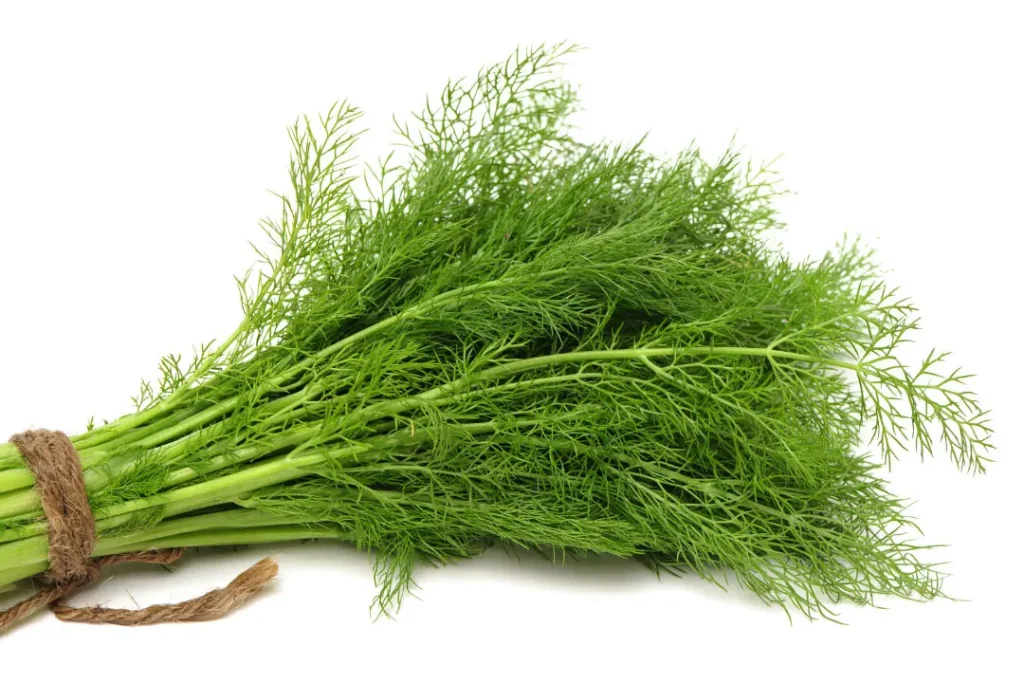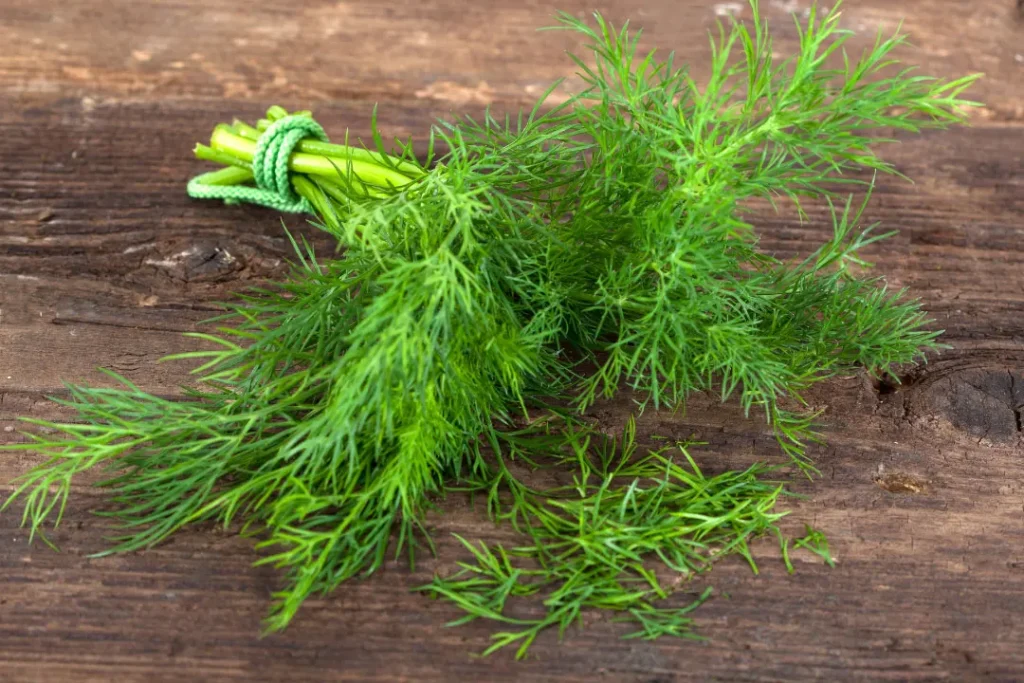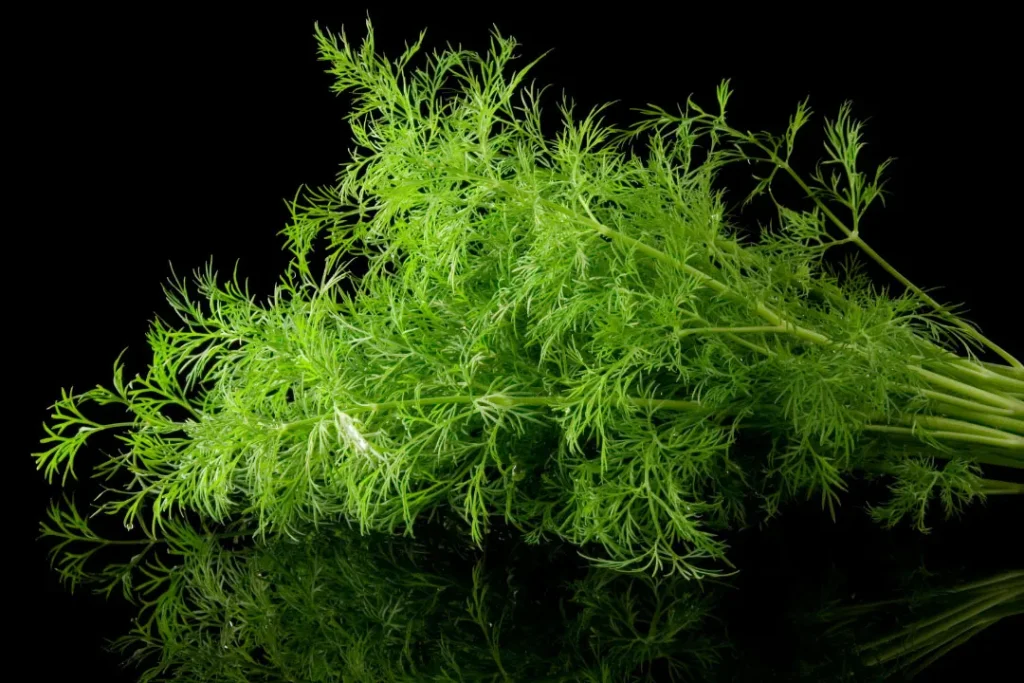The common herbaceous plant known as dill, or Anethum graveolens, belongs to the Apiaceae family, which also includes celery. Dill is a plant with feathery leaves and tiny, yellow blooms that is indigenous to western Asia and the eastern Mediterranean. Due to its wide range of medicinal characteristics, this fragrant herb is commonly used in culinary applications in addition to traditional medicine. The nature of dill, its possible health advantages, suggested dose, adverse effects, potential drug interactions, and its ideal and responsible usage as a dietary supplement are all covered in this article.
You May Also Like:
The Best Supplements for Brain Injury: 5 Top Brands Reviewed
Carrageenan: Benefits, Dosage, Side Effects, Drug Interactions, and Other Important Information
Dill: Benefits, Dosage, Side Effects, Drug Interactions, and Other Important Information is an original (NootroPicsPlanet) article.
The Nature of Dill
Phenolics, flavonoids, and essential oils are the main bioactive components of dill. Carvone and limonene, the essential oil’s main ingredients, are what give dill its characteristic flavor and aroma. Smaller concentrations of other substances are also found, such as dillapiole, alpha- and beta-phellandrene.
Health Benefits of Dill
The health advantages associated with dill in conventional medicine are supported by newly emerging scientific findings. These advantages seem to be significantly attributed to the monoterpenes and flavonoids, which are the main active components of dill.
Essential oils made from dill have been shown to have antibacterial and antiviral effects. According to a 2017 study, Escherichia coli and Candida albicans are only two of the bacteria and fungus that dill essential oil was found to be effective against. Additionally, the oil showed antiviral properties against type 1 HSV.
Antioxidant properties: Dill contains phenolic and flavonoid components, both of which have strong antioxidant properties. Free radicals, reactive chemicals that harm cells and speed up cellular aging as well as illnesses like cancer, can be neutralized by antioxidants. This is supported by a 2019 study in which dill extract had shown strong antioxidant properties.
Digestive Health: It has been discovered that anethole, a significant ingredient in dill seeds, stimulates bile production, improving digestion. Additionally, dill provides dietary fiber, which promotes gut health and regular bowel movements.
Cardiovascular Benefits: A study conducted in 2020 discovered that dill extract decreased hypercholesterolemic rats’ blood cholesterol levels, pointing to possible advantages for cardiovascular health.

Chemistry of Dill
Dill has a wide range of bioactive components that give it its distinctive flavor, fragrance, and medicinal potential. Volatile chemicals (essential oils) and non-volatile compounds (flavonoids, phenolics) are the two main divisions into which these ingredients may be divided.
Monoterpenes, particularly carvone, limonene, and phellandrene, make up the majority of the volatile chemicals and greatly contribute to the herb’s distinctive scent. About 40–60% of the essential oil produced from dill seeds is specifically carvone. An essential component of citrus fruit peels called limonene gives the scent a zesty undertone.
The non-volatile substances include phenolic substances like vanillic and ferulic acids as well as flavonoids like kaempferol and vicenin. These substances have a reputation for being antioxidants. Depending on multiple variables, these chemicals’ existence and quantities can change.
Physiological Mechanisms of Action of Dill
Dill’s phenolic components, flavonoids, and essential oils are principally responsible for its physiological effects.
The essential oils in dill are mostly responsible for its antibacterial and antiviral activities. Particularly carvone interferes with the permeability of microbial cell membranes, which prevents development and survival.
As stated, flavonoids and phenolic components in dill are what give it its antioxidant properties. These substances are powerful free radical scavengers, reactive species that may harm cellular structures and induce oxidative stress.
Anethole, a substance that promotes bile production and improves the digestion of dietary lipids, is the source of the digestive health advantages of dill. Additionally, dill’s fiber content helps to maintain intestinal regularity.
It is unclear exactly how dill can assist the heart, for example by lowering cholesterol. However, it’s speculated that the flavonoids in dill could improve the liver’s metabolism of cholesterol.
It’s important to remember that while existing scientific research points to these possible health advantages, further study is required to completely confirm these effects and comprehend the underlying processes. As a result, even while dill may have many health advantages, it should not be taken in place of medical care. The use of dill should be done with the advice of a healthcare practitioner, as with any other kind of supplement.

Optimal Dosage of Dill
Although there isn’t a set dose for dill as a supplement, it’s typically advised that people consume 1-2 tablespoons of dill seed or 2-3 sprigs of fresh dill daily. It is advised to dilute dill essential oil before using because of its strong scent.
Side Effects of Dill
Although dill has several health advantages, it’s important to be aware of any possible negative effects. Although dill is often regarded safe when ingested at meal levels, sensitive people may experience allergic responses, including skin irritation and respiratory problems. Dill essential oil can upset the stomach when consumed, and it can irritate the skin when applied undiluted.

Potential Substance Interactions with Dill
Drugs that slow blood clotting, such as anticoagulants and anti-platelet medicines, may interact with dill. This is because dill may also delay blood coagulation, which might possibly raise the risk of bleeding and bruising. Therefore, it is wise to speak with a healthcare professional before using dill as a supplement if you are using such drugs.
Responsible Use of Dill as a Nutritional Supplement
Dill is more than simply a culinary herb; it also has a wide range of bioactive components, including flavonoids and monoterpenes. The data favor the use of dill as a dietary supplement due to its antibacterial activity, antioxidant qualities, support for the digestive system, and cardiovascular advantages.
But it’s important to handle dill responsibly. Always follow dose guidelines and take into account any possible adverse effects and drug combinations. Before using dill as a supplement, talk to your doctor, especially if you’re on medication or have a medical condition.
Dill is still being studied for its potential as a medicine, and the scientific community is always learning new things about the capabilities of this adaptable herb. As usual, it’s crucial to strike a balance between your excitement for natural therapies and your critical assessment of the scientific evidence and responsible usage.

Dill: Conclusion
Dill, or Anethum graveolens has been shown in scientific studies to contain high concentrations of monoterpenes and flavonoids. Dill also contains essential oils like limonene and carvone, which contribute to its anti-inflammatory and antimicrobial properties. When Dill is used as a supplement, it can help to protect the body against oxidative stress. Dill also shows promising results in improving digesting health, which is an added advantage, since Dill can be both an addition to your culinary creations and a great supplement for your health.
Dill was also found to have specific antibacterial and antifungal properties against Escherichia coli and Candida albicans. It is advised to seek healthcare advice because some people may experience allergic responses such as skin irritation with this supplement. Dill may also have some side effects such as delaying blood coagulation. Hence, buy Dill supplements from trustworthy sources and always do your research before incorporating them into your diet.
References:
- The Study of Anti-Inflammatory Activity of Oil-Based Dill (Anethum graveolens L.) Extract Used Topically in Formalin-Induced Inflammation Male Rat Paw. Retrieved from: https://www.ncbi.nlm.nih.gov/pmc/articles/PMC3813168/
- The Effects of Anethum Graveolens (Dill) Powder Supplementation on Clinical and Metabolic Status in Patients with Type 2 Diabetes. Retrieved from: https://pubmed.ncbi.nlm.nih.gov/32503652/#:~:text=Results%3A%20The%20dill%20powder%20supplementation,measurements%20(P%20%3C%200.05).
- Anethum Graveolens (Dill) – A Medicinal Herb Induces Apoptosis and Cell Cycle Arrest in Hepg2 Cell Line. Retrieved from: https://pubmed.ncbi.nlm.nih.gov/29530611/
Important Note: The information contained in this article is for general informational purposes only, and should not be construed as health or medical advice, nor is it intended to diagnose, prevent, treat, or cure any disease or health condition. Before embarking on any diet, fitness regimen, or program of nutritional supplementation, it is advisable to consult your healthcare professional in order to determine its safety and probable efficacy in terms of your individual state of health.
Regarding Nutritional Supplements Or Other Non-Prescription Health Products: If any nutritional supplements or other non-prescription health products are mentioned in the foregoing article, any claims or statements made about them have not been evaluated by the U.S. Food and Drug Administration, and such nutritional supplements or other health products are not intended to diagnose, treat, cure, or prevent any disease.


